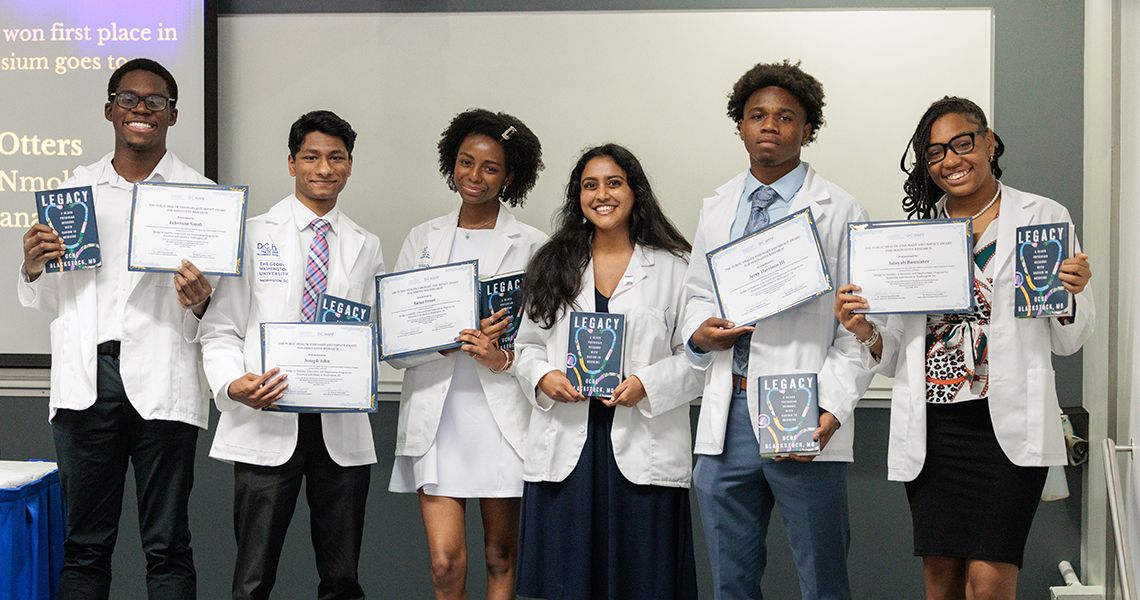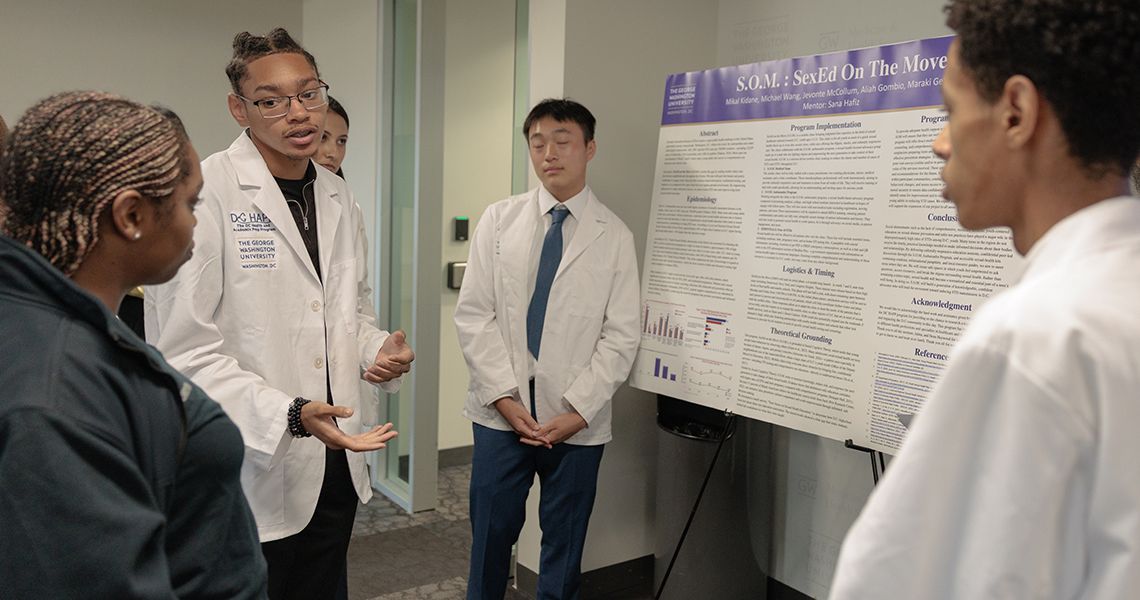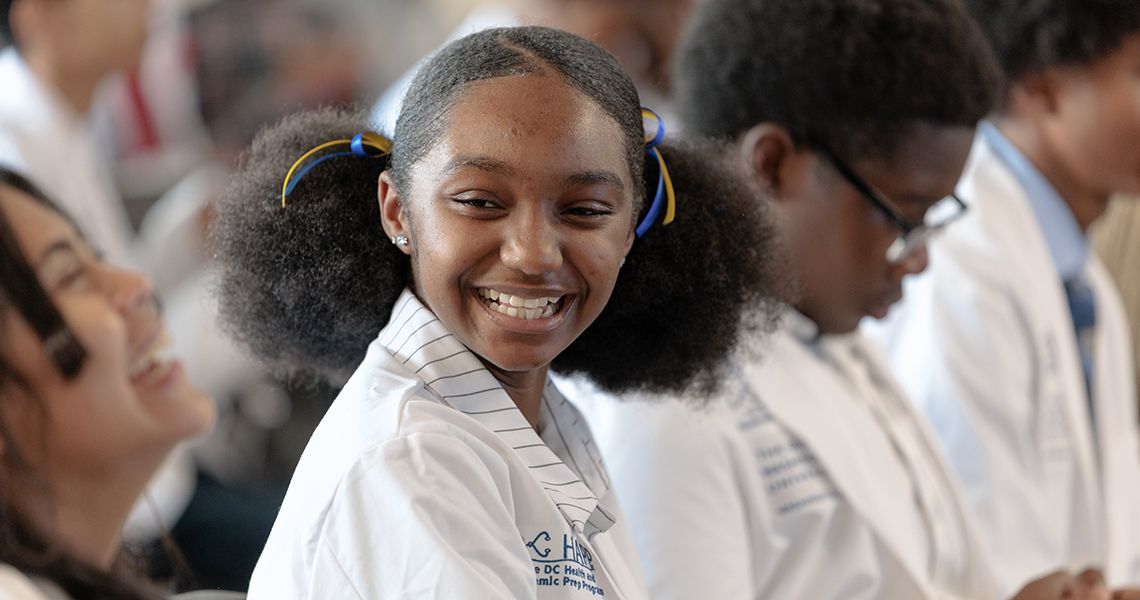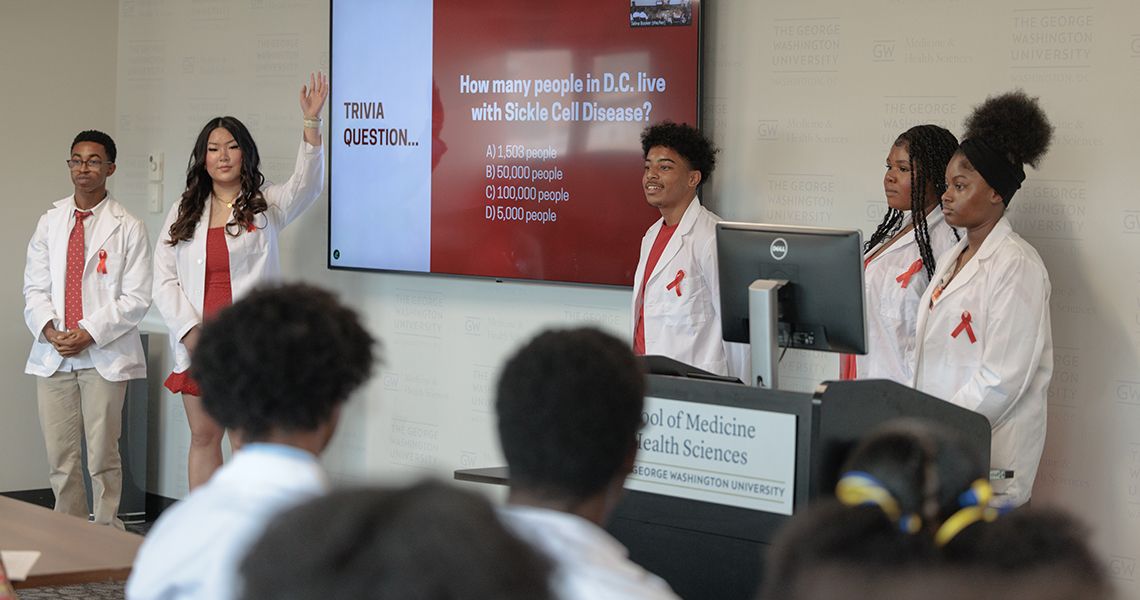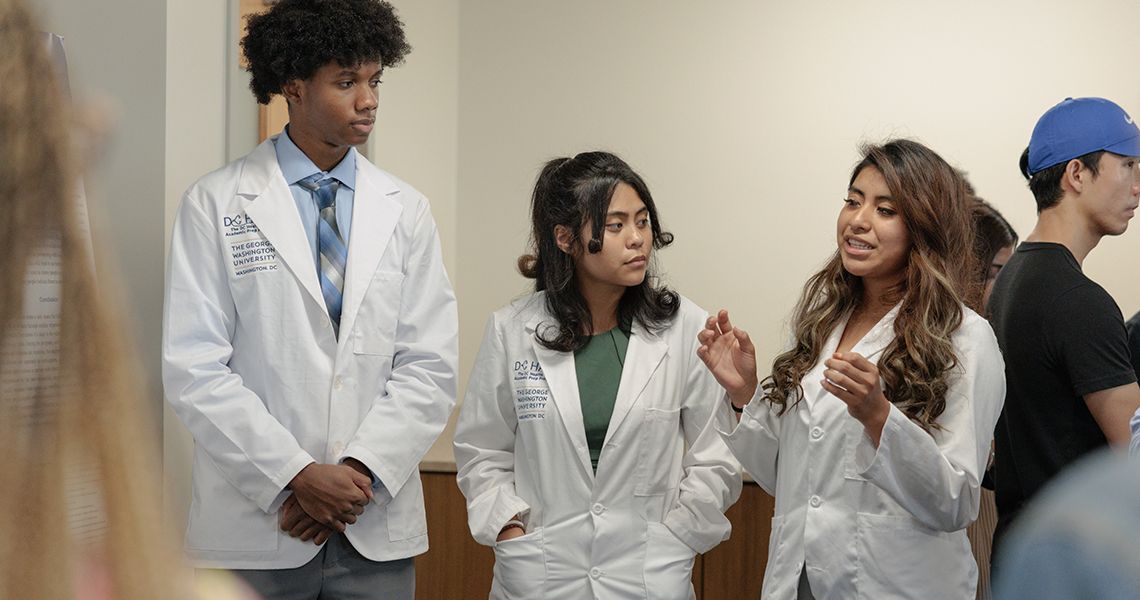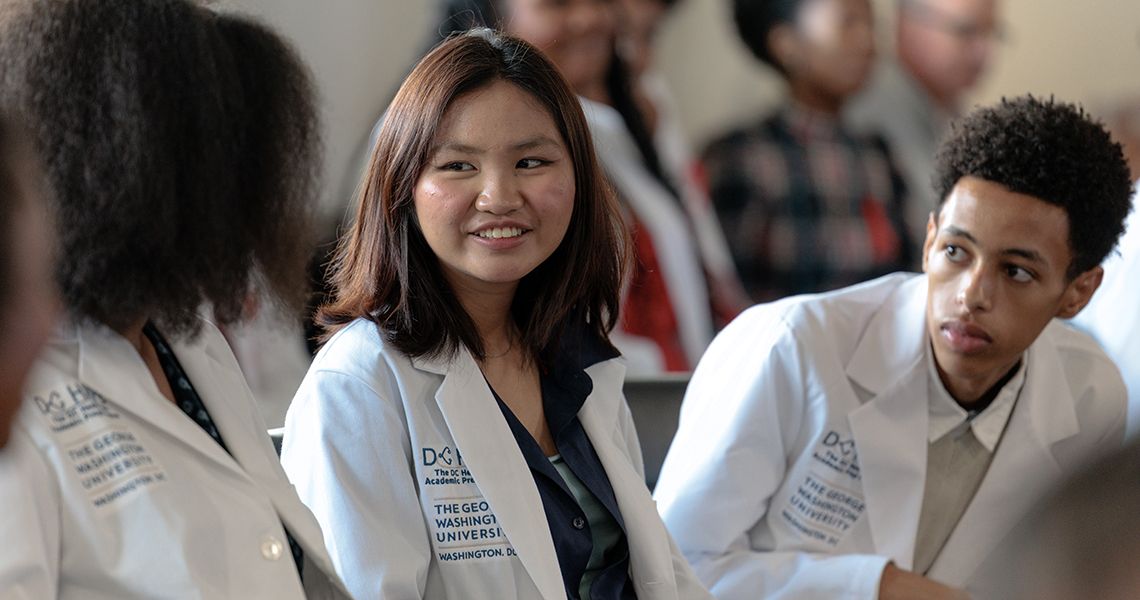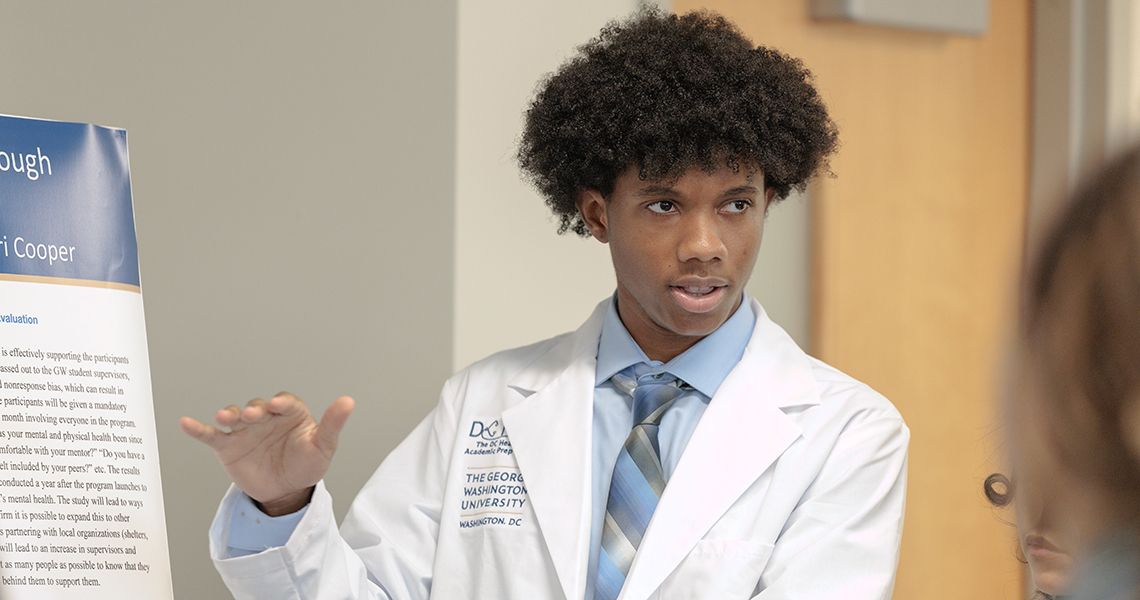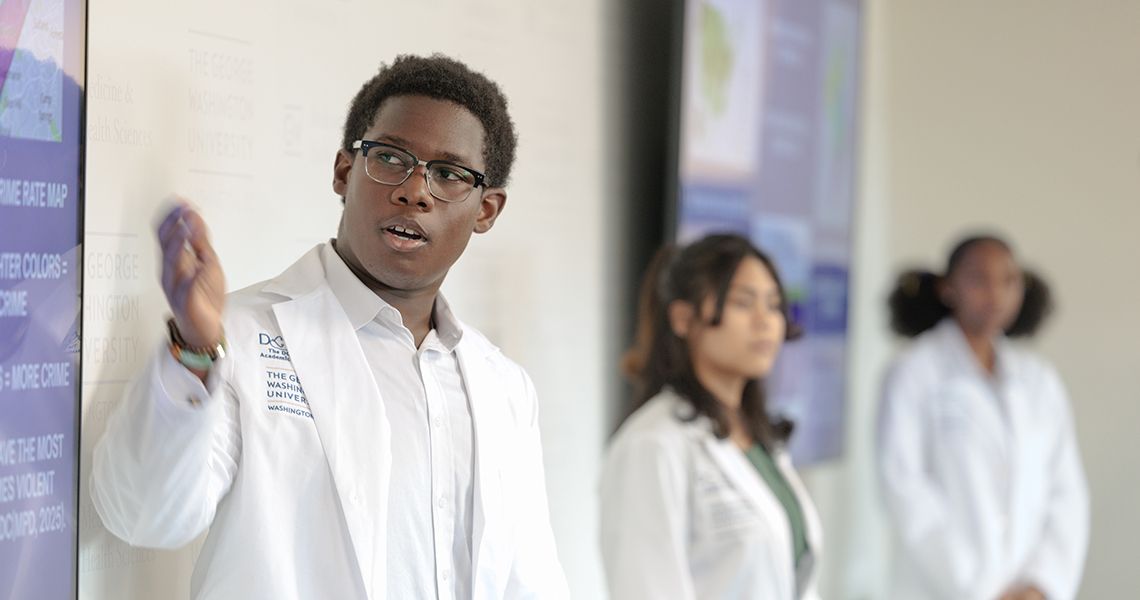The George Washington University (GW) School of Medicine and Health Sciences (SMHS) hosted its annual research symposium and poster session, highlighting critical health issues facing the nation’s capital. The event, organized by the DC Health and Academic Preparation Program (DC HAPP), featured presentations by D.C.-area high school students who completed a four-week summer program focused on medicine, patient care, and health equity.
“It’s so great to see the growth, and seeing how well-prepared the students were,” said Grace Henry, EdD ’12, assistant dean for diversity and inclusion. “The ability to talk to people that you do not know, to defend your points, and to listen and to incorporate feedback — that will make them greater scholars than they already are.”
Launched in 2009, DC HAPP is coordinated by the GW SMHS Office of Diversity and Inclusion. The program offers students from Washington, D.C., public and charter high schools an immersive introduction to health careers, with hands-on experiences including intubation, blood draws, and a simulated birthing exercise.
The program aims to increase access to health professions and expand diversity in the medical workforce. In addition to clinical exposure, participants build transferable skills such as critical thinking, teamwork, and a foundational understanding of scientific research to support future academic and career success.
The Open-Hearted Otters team — Sanaa Evans, Echezona Nmoh, Jerry Harrison III, Joseph John, and Jalayah Bannister, mentored by second-year MD student Medha Kurukunda — received this year’s Public Health Visionary and Impact Award for the project, “Bridge to Stability: A Recovery and Employment Program for Homeless Individuals in Washington, DC.”
The team examined risk factors affecting unhoused individuals in the District, including lack of income, domestic violence, and unemployment. Their project proposed a peer-powered pathway to provide rapid access to treatment, supportive housing, and employment for individuals experiencing active substance use disorder.
Each summer, student teams are challenged to design community-based health initiatives that could be submitted for District government funding in the coming year. This year’s symposium showcased solutions addressing adolescent mental health and domestic violence, sickle cell anemia awareness, and sexual education and STI testing.
“We asked the scholars to think as if they were employees of the DC Department of Health,” said Jalina Booker, program director for DC HAPP and diversity program manager in the GW SMHS Office of Diversity and Inclusion.
Operating under that premise, students designed pilot programs with targeted interventions and built-in evaluation strategies to assess their impact.
A panel of faculty judges — Theiline Gborkorquellie, MD, MHS, assistant professor of pediatrics; Laura Abate, MSLS, director of the Himmelfarb Health Sciences Library and adjunct associate professor of medicine; Howard Straker, MPH, PA, associate professor of physician assistant studies and director of the PA/MPH program; and Maranda Ward, EdD ’17, MPH, associate professor of clinical research and leadership — reviewed each presentation and posed questions to the students about their project designs and implementation strategies.
Kingston Fuller received the Dr. Yolanda C. Haywood Leadership in Excellence Award, presented annually to a scholar who demonstrates outstanding leadership during the program. The award honors DC HAPP founder Yolanda Haywood, MD, RESD ’87, BS ’81, CERT ’04, senior associate dean for diversity, inclusion, and faculty affairs, and associate dean for student affairs.
